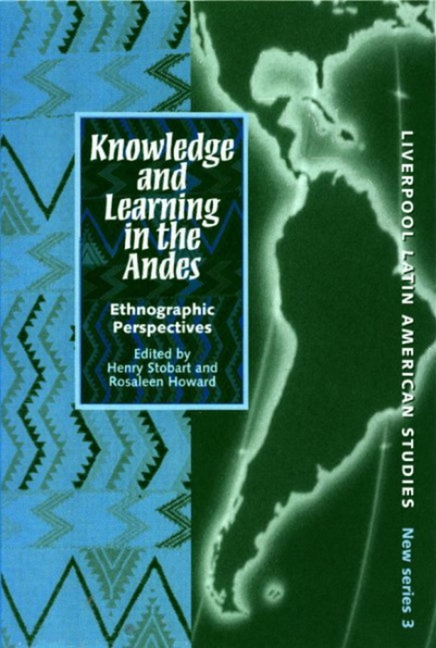Book contents
- Frontmatter
- Contents
- List of illustrations
- List of contributors
- Introduction
- Part I: Multiple Media in the Creation and Transmission of Knowledge
- 1 Yachay: The Tragedia del fin de Atahuallpa as Evidence of the Colonisation of Knowledge in the Andes
- 2 Transmission of Knowledge through Textiles: Weaving and Learning How to Live
- 3 Coloured Knowledges: Colour Perception and the Dissemination of Knowledge in Isluga, Northern Chile
- 4 Interlocking Realms: Knowing Music and Musical Knowing in the Bolivian Andes
- Part II: Knowledge, Power and Authority
- Part III: Conflicting Paradigms of Knowledge
- Index
2 - Transmission of Knowledge through Textiles: Weaving and Learning How to Live
from Part I: Multiple Media in the Creation and Transmission of Knowledge
- Frontmatter
- Contents
- List of illustrations
- List of contributors
- Introduction
- Part I: Multiple Media in the Creation and Transmission of Knowledge
- 1 Yachay: The Tragedia del fin de Atahuallpa as Evidence of the Colonisation of Knowledge in the Andes
- 2 Transmission of Knowledge through Textiles: Weaving and Learning How to Live
- 3 Coloured Knowledges: Colour Perception and the Dissemination of Knowledge in Isluga, Northern Chile
- 4 Interlocking Realms: Knowing Music and Musical Knowing in the Bolivian Andes
- Part II: Knowledge, Power and Authority
- Part III: Conflicting Paradigms of Knowledge
- Index
Summary
In recent decades the Western world has become increasingly aware that in an age of rapidly expanding technological knowledge many other kinds of knowledge are becoming lost. This preoccupation with loss may manifest itself as nostalgia, New Ageism, or attempts to tap into indigenous knowledge systems in fields such as pharmaceuticals.
Within the field of anthropology there has been an upsurge of interest in the diversity of knowledge systems and how they are learned. This has manifested itself in a considerable literature concerning knowledge in general and indigenous forms of knowledge in particular (Crick 1982; Fardon 1995; Sillitoe 1998), and the definition, learning and transmission of practical skills (Coy 1989; Ingold 1993, 2000; Lave and Wenger 1991; Lock 1993; Pelissier 1991) within such diverse fields as fishing, weaving, blacksmithing and shunting (Palsson 1994; Palsson [ed.] 1993; Aronson 1989; Deafenbaugh 1989; Dilley 1989; Coy 1989; Edelman 1993). In addition several collections have focused on the importance of context in the practice and transmission of knowledge (Howard-Malverde [ed.] 1997; Dilley [ed.] 1999).
In this chapter I will examine the acquisition of one particular form of knowledge: knowledge of weaving practice in a Quechua-speaking community in highland Bolivia in the first half of the 1980s, when I carried out fieldwork in the region. I shall do this through examination of the Quechua concept of yachay, ‘knowing, knowledge’, as described in lexicons of the early colonial period (Santo Tomás 1951; González Holguín 1952) and as observed during fieldwork. Yachay, I argue, corresponds to the sense of pre-Enlightenment English-language terms denoting knowledge such as ‘craft’ and ‘cunning’; yacha- and these English terms are indicative of learning practical skills through dialogue or interaction with the materials worked upon and of an organic understanding of knowledge and its relation to growth. I contrast this organic knowledge, which can only be learned through practice within the appropriate context, with knowledge gained through study of written texts, which can be gained anywhere at any time and which does not require practical demonstration of understanding for it to be considered learned. I will then describe how weaving is learned by girl children in Quechua villages in the Bolívar area, and my own experience of learning to weave.
- Type
- Chapter
- Information
- Knowledge and Learning in the AndesEthnographic Perspectives, pp. 40 - 55Publisher: Liverpool University PressPrint publication year: 2002



